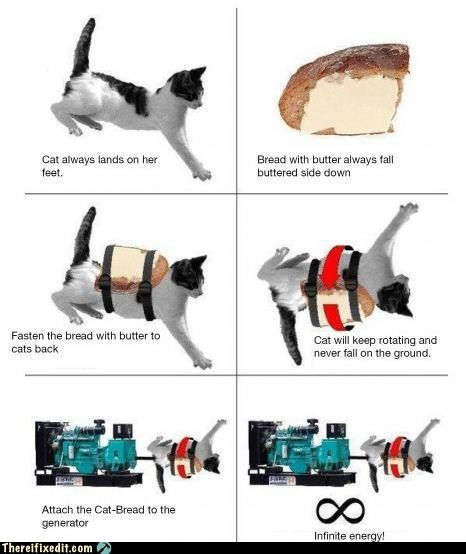Associate
He figured that our planet is generating power in lots of different forms, in perpetual motion.
The problem isn't generating it, It's harnessing it in safe & useful ways.

He figured that our planet is generating power in lots of different forms, in perpetual motion.
The problem isn't generating it, It's harnessing it in safe & useful ways.

Welcome to the fascinating world of Nikolai Tesla !!
He figured that our planet is generating power in lots of different forms, in perpetual motion.
The problem isn't generating it, It's harnessing it in safe & useful ways.
gas is cheaper than electricity.
so yes you need the same amount of energy to heat a home. however with gas being cheaper it makes financial sense to try and reduce electricity costs and convert them into gas costs instead.
Welcome to the fascinating world of Nikolai Tesla !!
He figured that our planet is generating power in lots of different forms, in perpetual motion.
The problem isn't generating it, It's harnessing it in safe & useful ways.
And you are arguing against thermodynamics. Good luck to you
Consider the following scenario.
You are in a room being maintained at 21C by a thermostatically controlled electric heater.
You have an "Old" type light-bulb rated at 100 Watts and you are gaming on a rig that consumes 500 watts.
You stop gaming. and switch off the computer
Then you switch off the light.
What happens to the heater? How much energy has been "saved" by stopping gaming and switching off the light...?
Using an electric heater in that scenario to prove your point is a bit disingenuous really. It's more efficient to directly burn a fossil fuel to generate heat than it is to burn a fossil fuel to generate electricity (energy losses) which is then transmitted down hundreds of miles of cable (more losses), which then passes through a transformer to get to a domestic voltage (even more losses) before being converted to heat (finally in the right place) by an electric heater.
So...
Where does the electricity go when it comes out the other side of the lightbulb?
Which is why, in a temperate climate like the UK where back ground heating is desirable for a good part of the year, nonsense like low energy light-bulbs is mostly nonsense....
(Because variable charging rates/fuel costs, they might save some money, but they wont save very much energy. The Green argument is mostly bogus...)
Disagree.
Gas is cheaper and more efficient way to heat than using heat producing devices.
And the small amount of heat is likely to be lost through leakage. You'd have to have a perfectly insulated home for it to warrant any meaningful difference.Exactly. Also the heat is all up at ceiling level ! Radiators are designed to creat convection currents to warm the room
Using an electric heater in that scenario to prove your point is a bit disingenuous really. It's more efficient to directly burn a fossil fuel to generate heat than it is to burn a fossil fuel to generate electricity (energy losses) which is then transmitted down hundreds of miles of cable (more losses), which then passes through a transformer to get to a domestic voltage (even more losses) before being converted to heat (finally in the right place) by an electric heater.
It's the same for fossil fuels. Transporting them to the point where you burn it will also incur losses.
I'd say that shipping the gas in a tanker from USA probably incurs more losses than transmitting electricity hundreds of miles down a cable.
And then when the gas does get here there's losses in the pipelines through friction similar to the losses of transmitting electricity through a cable. I dont know how the numbers would compare though - I'm no fluid dynamics expert.

